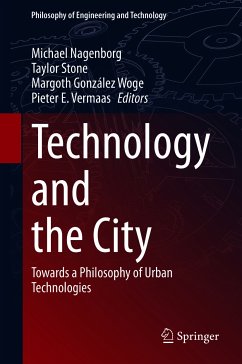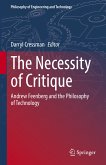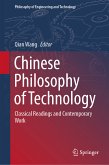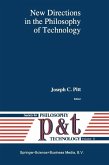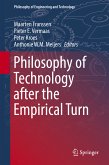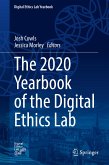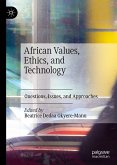Technology and the City (eBook, PDF)
Towards a Philosophy of Urban Technologies
Redaktion: Nagenborg, Michael; Vermaas, Pieter E.; González Woge, Margoth; Stone, Taylor


Alle Infos zum eBook verschenken

Technology and the City (eBook, PDF)
Towards a Philosophy of Urban Technologies
Redaktion: Nagenborg, Michael; Vermaas, Pieter E.; González Woge, Margoth; Stone, Taylor
- Format: PDF
- Merkliste
- Auf die Merkliste
- Bewerten Bewerten
- Teilen
- Produkt teilen
- Produkterinnerung
- Produkterinnerung

Hier können Sie sich einloggen

Bitte loggen Sie sich zunächst in Ihr Kundenkonto ein oder registrieren Sie sich bei bücher.de, um das eBook-Abo tolino select nutzen zu können.
The contributions in this volume map out how technologies are used and designed to plan, maintain, govern, demolish, and destroy the city. The chapters demonstrate how urban technologies shape, and are shaped, by fundamental concepts and principles such as citizenship, publicness, democracy, and nature. The many authors herein explore how to think of technologically mediated urban space as part of the human condition. The volume will thus contribute to the much-needed discussion on technology-enabled urban futures from the perspective of the philosophy of technology. This perspective also…mehr
- Geräte: PC
- ohne Kopierschutz
- eBook Hilfe
- Größe: 10.02MB
![The Necessity of Critique (eBook, PDF) The Necessity of Critique (eBook, PDF)]() The Necessity of Critique (eBook, PDF)73,95 €
The Necessity of Critique (eBook, PDF)73,95 €![Chinese Philosophy of Technology (eBook, PDF) Chinese Philosophy of Technology (eBook, PDF)]() Chinese Philosophy of Technology (eBook, PDF)73,95 €
Chinese Philosophy of Technology (eBook, PDF)73,95 €![New Directions in the Philosophy of Technology (eBook, PDF) New Directions in the Philosophy of Technology (eBook, PDF)]() New Directions in the Philosophy of Technology (eBook, PDF)73,95 €
New Directions in the Philosophy of Technology (eBook, PDF)73,95 €![Philosophy of Technology after the Empirical Turn (eBook, PDF) Philosophy of Technology after the Empirical Turn (eBook, PDF)]() Philosophy of Technology after the Empirical Turn (eBook, PDF)97,95 €
Philosophy of Technology after the Empirical Turn (eBook, PDF)97,95 €![A Critical Reflection on Automated Science (eBook, PDF) A Critical Reflection on Automated Science (eBook, PDF)]() A Critical Reflection on Automated Science (eBook, PDF)73,95 €
A Critical Reflection on Automated Science (eBook, PDF)73,95 €![The 2020 Yearbook of the Digital Ethics Lab (eBook, PDF) The 2020 Yearbook of the Digital Ethics Lab (eBook, PDF)]() The 2020 Yearbook of the Digital Ethics Lab (eBook, PDF)105,95 €
The 2020 Yearbook of the Digital Ethics Lab (eBook, PDF)105,95 €- -30%11
![African Values, Ethics, and Technology (eBook, PDF) African Values, Ethics, and Technology (eBook, PDF)]() African Values, Ethics, and Technology (eBook, PDF)97,95 €
African Values, Ethics, and Technology (eBook, PDF)97,95 € -
-
-
Dieser Download kann aus rechtlichen Gründen nur mit Rechnungsadresse in A, B, BG, CY, CZ, D, DK, EW, E, FIN, F, GR, HR, H, IRL, I, LT, L, LR, M, NL, PL, P, R, S, SLO, SK ausgeliefert werden.
Hinweis: Dieser Artikel kann nur an eine deutsche Lieferadresse ausgeliefert werden.
- Produktdetails
- Verlag: Springer International Publishing
- Seitenzahl: 450
- Erscheinungstermin: 25. Januar 2021
- Englisch
- ISBN-13: 9783030523138
- Artikelnr.: 60994811
- Verlag: Springer International Publishing
- Seitenzahl: 450
- Erscheinungstermin: 25. Januar 2021
- Englisch
- ISBN-13: 9783030523138
- Artikelnr.: 60994811
- Herstellerkennzeichnung Die Herstellerinformationen sind derzeit nicht verfügbar.
